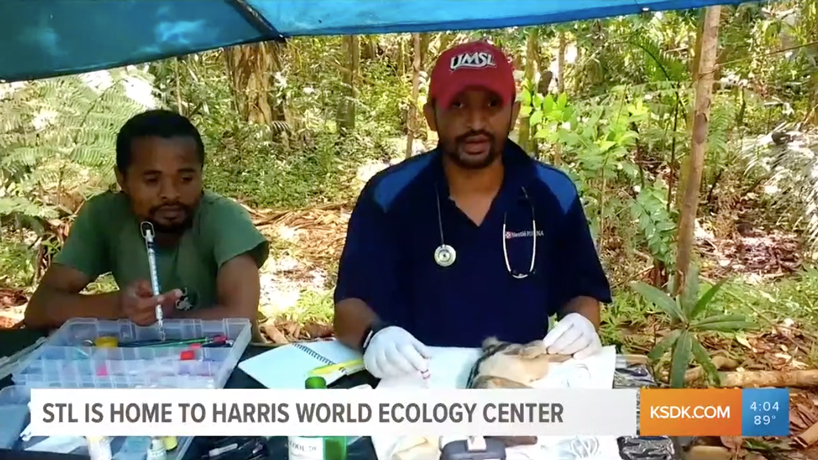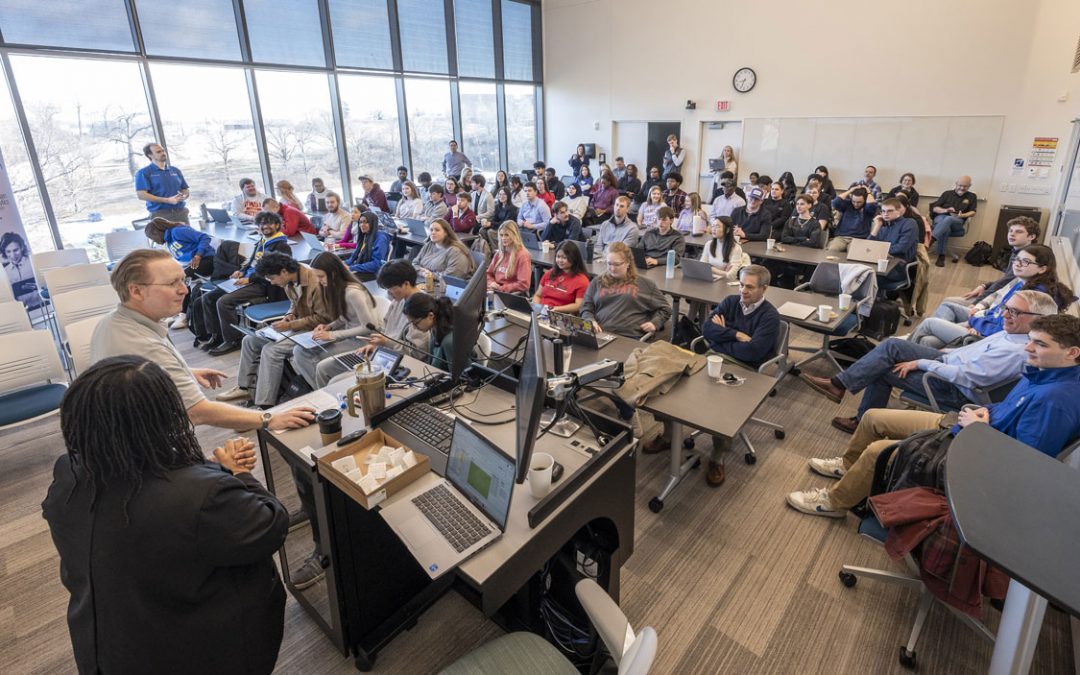
KSDK (Channel 5) spoke to UMSL graduate Fidy Rasambainarivo about his research on the spread of disease in his native Madagascar during a report Friday about the global impact of UMSL’s Whitney R. Harris World Ecology Center. (Screenshot from KSDK)
Last week, NBC News aired a series of stories related to issues of climate change ahead of the United Nations Climate Action Summit taking place Monday in New York.
Some of the network’s affiliates followed suit with coverage of climate-connected initiatives occurring in their own backyards.
In St. Louis, KSDK (Channel 5) broadcast a report on the work of the Whitney R. Harris World Ecology Center at the University of Missouri–St. Louis during its 4 p.m. newscast last Friday.
“The center brings together researchers at UMSL, the Missouri Botanical Garden and the Saint Louis Zoo to promote research and training in basic ecology and biodiversity conservation all over the world,” anchor Kay Quinn said during Friday’s newcast. “Students come from their home countries to St. Louis, study at the center, earn advanced degrees and go back to their home countries to provide their expertise.”
The Harris Center, created in 1990 as the International Center for Tropical Ecology, has trained more than 275 graduates with master’s degrees or PhDs in conservation science. They have come from 38 counties and, in many cases, have returned home to play a role in research or policymaking.
Quinn spoke to 2018 UMSL PhD graduate Fidy Rasambainarivo via Skype about his work in his native Madagascar.
Rasambainarivo is studying how diseases in human and domesticated animals are threating lemurs and other indigenous animals on the island about 250 miles off the east coast of Africa.
“We’re getting close as in we now know how much risk there is from that,” Rasambainarivo told Quinn. “So that allows us to take action and to try to further the research and to know more precisely how we can limit those interactions.”
As Rasambainarivo noted in his interview with Quinn, conservation is a long-term prospect, and it can often take years to see progress.
To watch KSDK’s full report on the Harris Center, click here.
Rasambainarivo will scheduled to be a featured speaker during the Harris Center’s 23rd World Ecology Award Gala on Nov. 15 at the Blanche M. Touhill Performing Arts Center. The Harris Center will present the World Ecology Award to its longtime partners the Missouri Botanical Garden and the Saint Louis Zoo in recognition of their exceptional, decades-long conservation initiatives in Madagascar.














